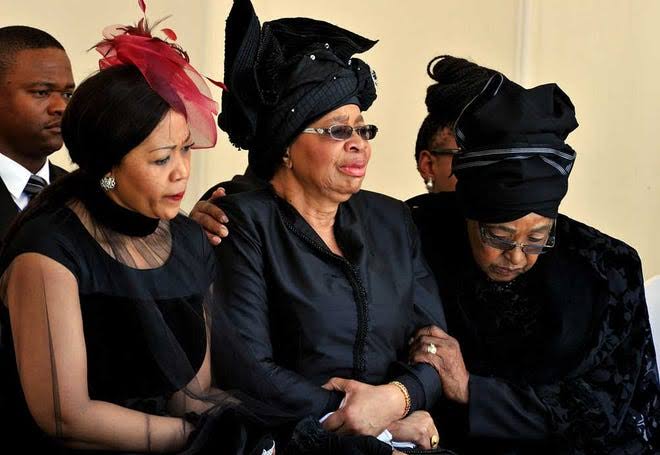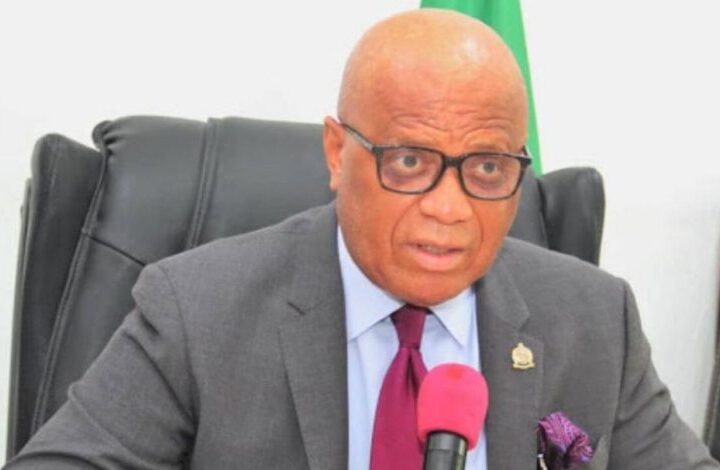By Sola Salako-Ajulo
Inflation is an economic reality that affects every sector, and in Nigeria, its impact has been particularly severe in recent months. The removal of subsidies on petroleum products, combined with volatile exchange rates, has led to a significant surge in the cost of living. From food items to transportation, prices have risen sharply, placing immense pressure on consumers.
Join our WhatsApp ChannelOne of the most immediate consequences of the current inflationary pressures is the dramatic increase in the cost of essential goods, particularly food. For example, the price of a 50kg bag of rice, which was around N35,000 before the subsidy removal, has now surged to over N70,000 in many parts of the country, a clear 100% increase. Similarly, a loaf of bread that previously cost N500 now costs N1,600 or more, depending on the location. That is over 200% increase! Utilities like electricity have also seen about 200% increase in prices under a confusing band service matrix. Nigerian consumers are seeing between 100-500% price increase in cost of living, which has almost wiped out the middle class and is daily increasing the number of people now living in poverty. Food inflation is hovering around 30% while wage increases are not catching up with the galloping inflation.
While the subsidy removal and exchange rates volatility could account for the adjustment in cost of living, the speed of impact and the angle of inflation we are experiencing appear to exceed the average rate expected from such economic adjustments. These price hikes are not merely reflective of increased production costs; they are also a result of many businesses preemptively adjusting prices to cover the anticipated higher costs of replenishing their stock, a practice known as replacement cost pricing.
READ ALSO:Price Hike: Dangote Refinery Won’t Sell Petrol At A Loss – Expert
This approach, which may seem like a protective measure for businesses, has far-reaching and often detrimental effects on the economy. By increasing prices to reflect replacement costs, businesses inadvertently distort the market, leading to sudden and sharp increases in the cost of living. This has created an incongruence between the percentage increase in fuel prices and the overall inflation rate. It also directly affects the speed at which inflation appears in the market, which normally should be measured in months but which we are measuring in minutes, leaving the consumer with zero time to plan for adjustments to inflation. Replacement Cost Pricing (RCP) effectively shifts the full burden of inflation onto consumers, forcing them to bear the cost of future economic uncertainties.
Price Gouging: Exploiting a Vulnerable Market
While replacement cost pricing may appear as a necessary business strategy, it often opens the door to price gouging—an exploitative practice where prices are inflated to levels far beyond what is necessary to cover costs and account for reasonable profit. Price gouging typically occurs during emergencies or periods of economic instability, such as the current inflationary period in Nigeria. It is particularly prevalent in essential goods like food, medicine, and fuel, where consumers have little choice but to pay exorbitant prices to meet their basic needs.
The effects of price gouging are profoundly damaging to the economy and society. First, it erodes consumer trust. When consumers perceive that businesses are taking advantage of them during challenging times, it undermines the relationship between buyers and sellers. Trust is a cornerstone of a healthy market, and when it is lost, consumers may begin to withhold spending, seek out black markets, or engage in other behaviors that further destabilize the economy.
Moreover, price gouging worsens inequality. Those with higher incomes may be able to absorb the increased costs, but for the majority of Nigerians who live on lower incomes, these price hikes can be devastating. Families may be forced to cut back on essential items, such as food and healthcare, in order to make ends meet. This can lead to long-term negative outcomes, including malnutrition, increased illness, and reduced educational opportunities for children. Price gouging encourages adulteration of products. When the prices of food and products are outside the consumer’s purchasing power, they will look for more affordable alternatives which may be lower in quality or unwholesome for their consumption, leading to higher health risks. It creates an artificial scarcity of limited supply which unscrupulous actors take advantage of by producing fake and adulterated products that they price within the reach of the average consumer who has been excluded due to the price gouging acts
Price gouging also contributes to inflationary spirals. As prices rise, workers demand higher wages to keep up with the cost of living. Businesses, in turn, raise prices further to cover the increased wage bills, creating a vicious cycle of inflation that can be difficult to break. This cycle can lead to hyperinflation if not checked, where prices increase so rapidly that the currency loses its value almost overnight, leading to economic collapse.
The Role of the FCCPC in Curbing Price Gouging
Recognizing the dangers of price gouging, the Federal Competition and Consumer Protection Commission (FCCPC) has taken proactive steps to protect consumers. The Executive Vice Chairman of the FCCPC, Mr. Tunji Bello, recently issued a directive requiring sellers to adjust their prices within one month or face enforcement actions. While some may view this directive as an attempt at government-imposed price fixing, the FCCPC’s true aim is to protect consumers from being unfairly burdened by replacement cost pricing and price gouging.
The FCCPC’s intervention is particularly crucial in the current economic climate, where the combination of inflation and subsidy removal has left many consumers vulnerable. By requiring businesses to justify their price increases and ensuring that they are in line with actual cost increases rather than speculative future costs, the FCCPC is helping to prevent unscrupulous businesses from taking advantage of the situation. This not only protects consumers but also helps to stabilize the market by curbing excessive price increases that can fuel further inflation.
The Role of Financial Markets and Banking Practices in Market Price Stability
The challenges posed by inflation are further compounded by the weaknesses in Nigeria’s financial markets and the reluctance of banks to engage in traditional lending practices. In a healthy economy, businesses would seek capital from financial institutions to cover the increased costs of replenishing stock, rather than passing these costs directly onto consumers. However, the reality in Nigeria is starkly different. High-interest rates, currently hovering around 40%, make borrowing prohibitively expensive, particularly for small and medium-sized enterprises (SMEs).
This situation creates a vicious cycle: businesses avoid borrowing due to the high costs, leading them to rely more heavily on replacement cost pricing to fund their operations. Consumers, in turn, bear the brunt of these inflated prices, further reducing their purchasing power and contributing to economic stagnation. The reluctance of banks to lend, coupled with the exorbitant interest rates, highlights a critical weakness in the Nigerian economy—one that must be addressed if we are to move towards a more equitable and sustainable market environment.
The high cost of borrowing is not just a problem for businesses; it also reflects broader issues within Nigeria’s financial system. The reluctance of banks to lend is partly due to the elevated level of non-performing loans (NPLs) in the system, which has made banks more risk averse. Additionally, the high-interest rates reflect the underlying inflationary pressures in the economy, as well as the government’s monetary policy stance aimed at controlling inflation. However, these high rates have the unintended consequence of stifling economic growth by making it difficult for businesses to access the capital they need to expand and invest in new projects.
Growing a Healthier Economy- Creative Interventions
To break this cycle and create a more stable and fair market, several key steps must be taken. First, the government must take decisive action to reign in inflation. This could include implementing policies that stabilize the exchange rate, reduce dependency on imported goods, and support local production. By reducing inflationary pressures, the government can help lower interest rates, making it more feasible for businesses to obtain loans and reducing their reliance on replacement cost pricing.
Second, the financial sector must be reformed to encourage more traditional banking practices. Banks should be incentivized to lend to businesses, particularly SMEs, at more reasonable interest rates. This could involve government-backed loan guarantees, or the establishment of special funds dedicated to supporting business lending. By making capital more accessible, businesses will be less inclined to pass their replacement costs onto consumers, leading to more stable pricing and a healthier overall economy.
Third, regulatory bodies like the FCCPC must continue to monitor and enforce fair pricing practices. While the free market should be allowed to function, there must be checks and balances in place to prevent exploitative practices like price gouging. The FCCPC’s recent actions are a step in the right direction, but ongoing vigilance is needed to ensure that businesses do not take advantage of consumers during times of economic uncertainty.
Again, government needs to utilize a mix of trade interventions available to drive down cost of production and intervene in the cost value chain especially of food and healthcare products. The recent suspension of custom tariffs on food and healthcare production imports by President Bola Tinubus a step in the right direction but the process must be closely monitored to ensure accurate implementation and tracked to see that the savings are passed to the consumer through lower prices.
On food inflation, this might be the best time for the President to constitute the much-touted Market Boards as an intervention in the value chain to check the excesses of middlemen and ensure fair prices at both ends from farm to market. The “Ounje Eko” 25% Discount Markets introduced by Governor Babajide Sanwoolu is another creative intervention to curb price inflation for consumers in Lagos State, which other governments at all levels could consider to alleviate the impact of high cost of living on essential goods and services.
Finally, businesses themselves must adopt more ethical pricing practices. Rather than preemptively raising prices to cover future costs, businesses should focus on maintaining stable pricing based on the actual cost of production or acquisition plus a reasonable profit margin. This approach not only protects consumers but also fosters trust and loyalty, which are critical to long-term business success. Businesses that engage in fair pricing practices are likely to see higher customer retention and loyalty, which can provide a competitive advantage over time.
Conclusion
The practice of adjusting prices based on replacement costs is one that calls for careful reconsideration, particularly in an inflationary environment like Nigeria’s. While this approach may offer short-term protection for businesses, it has significant long-term consequences for the economy and consumers alike. By shifting away from replacement cost pricing and towards a more equitable model, businesses can help stabilize the market, protect consumers, and contribute to a healthier and more sustainable economy.
The recent actions of the FCCPC, along with the broader economic context, highlight the urgent need for change. As we navigate these challenging times, it is essential that all stakeholders—businesses, financial institutions, and the government—work together to create an environment that prioritizes fairness, equity, and stability. Only by doing so can we ensure that Nigeria’s economy remains resilient in the face of inflation and that consumers are not unduly burdened by the costs of economic uncertainty.
Furthermore, by addressing the underlying issues in the financial sector, such as high-interest rates and limited access to credit, the government can create a more conducive environment for business growth. This, in turn, will reduce the need for businesses to engage in replacement cost pricing and price gouging, leading to a more stable, fair and equitable market for all Nigerians.
Salako-Ajulo, an Advocate for Consumer Protection and Ethical Business Practices, writes from Lagos.
















Follow Us